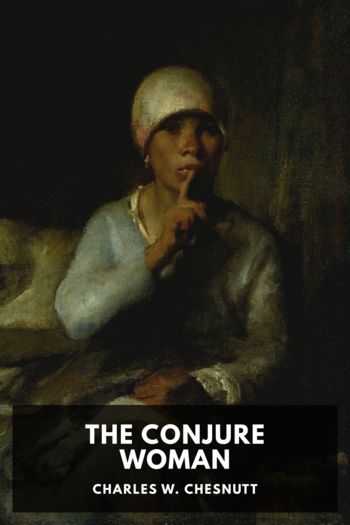Commentaries on the Gallic War, Julius Caesar [the chimp paradox TXT] 📗

- Author: Julius Caesar
Book online «Commentaries on the Gallic War, Julius Caesar [the chimp paradox TXT] 📗». Author Julius Caesar
Caesar, on being informed of this circumstance, sends several troops of horse to the place immediately after midnight; he orders them to range in every quarter with more tumult than usual. At dawn he orders a large quantity of baggage to be drawn out of the camp, and the muleteers with helmets, in the appearance and guise of horsemen, to ride round the hills. To these he adds a few cavalry, with instructions to range more widely to make a show. He orders them all to seek the same quarter by a long circuit; these proceedings were seen at a distance from the town, as Gergovia commanded a view of the camp, nor could the Gauls ascertain at so great a distance what certainty there was in the manoeuvre. He sends one legion to the same hill, and after it had marched a little, stations it in the lower ground, and conceals it in the woods. The suspicions of the Gauls are increased, and all their forces are marched to that place to defend it. Caesar, having perceived the camp of the enemy deserted, covers the military insignia of his men, conceals the standards, and transfers his soldiers in small bodies from the greater to the less camp, and points out to the lieutenants whom he had placed in command over the respective legions, what he should wish to be done; he particularly advises them to restrain their men from advancing too far, through their desire of fighting, or their hope of plunder; he sets before them what disadvantages the unfavourable nature of the ground carries with it; that they could be assisted by despatch alone: that success depended on a surprise, and not on a battle. After stating these particulars, he gives the signal for action, and detaches the Aedui at the same time by another ascent an the right.
The town wall was 1200 paces distant from the plain and foot of the ascent, in a straight line, if no gap intervened; whatever circuit was added to this ascent, to make the hill easy, increased the length of the route. But almost in the middle of the hill, the Gauls had previously built a wall six feet high, made of large stones, and extending in length as far as the nature of the ground permitted, as a barrier to retard the advance of our men; and leaving all the lower space empty, they had filled the upper part of the hill, as far as the wall of the town, with their camps very close to one another. The soldiers, on the signal being given, quickly advance to this fortification, and passing over it, make themselves masters of the separate camps. And so great was their activity in taking the camps, that Teutomarus, the king of the Nitiobriges, being suddenly surprised in his tent, as he had gone to rest at noon, with difficulty escaped from the hands of the plunderers, with the upper part of his person naked, and his horse wounded.
Caesar, having accomplished the object which he had in view, ordered the signal to be sounded for a retreat; and the soldiers of the tenth legion, by which he was then accompanied, halted. But the soldiers of the other legions, not hearing the sound of the trumpet, because there was a very large valley between them, were however kept back by the tribunes of the soldiers and the lieutenants, according to Caesar’s orders; but being animated by the prospect of speedy victory, and the flight of the enemy, and the favourable battles of former periods, they thought nothing so difficult that their bravery could not accomplish it; nor did they put an end to the pursuit, until they drew nigh to the wall of the town and the gates. But then, when a shout arose in every quarter of the city, those who were at a distance being alarmed by the sudden tumult, fled hastily from the town, since they thought that the enemy were within the gates. The matrons begin to cast their clothes and silver over the wall, and bending over as far as the lower part of the bosom, with outstretched hands beseech the Romans to spare them, and not to sacrifice to their resentment even women and children, as they had done at Avaricum. Some of them let themselves down from the walls by their hands, and surrendered to our soldiers. Lucius Fabius, a centurion of the eighth legion, who, it was ascertained, had said that day among his fellow soldiers that he was excited by the plunder of Avaricum, and would not allow anyone to mount the wall before him, finding three men of his own company, and being raised up by them, scaled the wall. He himself, in turn, taking hold of them one by one, drew them up to the wall.
In the meantime those who had gone to the other part of the town to defend it, as we have mentioned above, at first, aroused by hearing the shouts, and, afterwards, by frequent accounts that the town was in possession of the Romans, sent forward their cavalry, and hastened in larger numbers to that quarter. As each first came he stood beneath the wall, and





Comments (0)